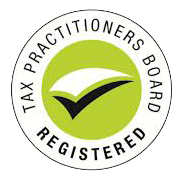Transition from Addiction to Sobriety with an Aftercare Program
by Kathie Baker, Release My Super 1300 941 037 | 0475 471 872
Making the decision to get sober is a huge step in the right direction. However, it is only the beginning of the journey. The successful transition from addiction to sobriety requires work, dedication, quality rehab, and most importantly, a solid aftercare plan.
In this blog article we introduce you to one of our rehab partners Hope in Health.
Aftercare programs provide vital support and resources for people in recovery. They can help individuals stay on track with their sobriety goals and overcome any challenges that arise along the way. Additionally, aftercare programs provide a sense of community and belonging for people in recovery, which is an essential element of success.
We are pleased to refer our clients to clinics like Hope in Health who also believe in providing programs which include transition support.
There are many factors to consider when choosing an aftercare program. It is important to find one that fits your individual needs and interests. Additionally, it is important to stay motivated in recovery and seek out support from family and friends, therapists or counsellors, and recovery groups.
Making a successful transition from addiction to sobriety is possible with the right aftercare program in place. With hard work and dedication, you can achieve your sobriety goals and live a happy, healthy life.
Invest in your Health
Did you know that you can access your super for compassionate grounds? You can gain access to super based on strict requirements and conditions; we partner with Release My Super to simplify this process.
The Importance of Aftercare in Addiction Recovery
Aftercare is a vital part of addiction recovery. It refers to the continued care and support that people in recovery receive after completing an addiction treatment program. Aftercare can help people in recovery stay on track and avoid relapse. It can also help them to continue to build a foundation for long-term sobriety.
There are many different types of aftercare programs available, and the right one for you will depend on your individual needs and circumstances. Some common types of aftercare programs include:
- Individual therapy: This type of aftercare program involves meeting with a therapist on a regular basis to discuss your progress in recovery and any challenges you may be facing.
- Group therapy: This type of aftercare program involves meeting with other people in recovery on a regular basis to support and encourage each other.
- 12-step meetings: These types of meetings are based on the 12 steps of Alcoholics Anonymous or another similar program. They provide support and fellowship for people in recovery.
- Sober living homes: These are homes where people in recovery live together and support each other as they transition back into daily life without drugs or alcohol.
Tips for Making a Successful Transition to Sobriety with an Aftercare Program
Aftercare programs like those provided by Hope in Health are an important part of addiction recovery, but it can be difficult to find the right one. There are many factors to consider, such as cost, location, and whether the program is inpatient or outpatient. It’s important to do your research and ask for recommendations from professionals in order to find the best aftercare program for you.
Staying Motivated in Recovery.
One of the most important things you can do in recovery is to stay motivated. This means setting goals and working towards them, even when it’s difficult. It’s also important to find a support system of family and friends who will help you through tough times. Finally, make sure to celebrate your accomplishments along the way!
Overcoming Challenges in Recovery.
Recovery is not always easy, but it is possible with hard work and dedication. If you’re struggling, reach out for help from your therapist, counsellor, or support group. Remember that setbacks are normal and don’t mean that you’re failing – they’re just part of the process.
The Importance of Support in Recovery
The role of family and friends in addiction recovery is crucial. They can provide an essential support network that can help motivate you to stay sober. They can also provide practical assistance, such as transportation to and from treatment or aftercare meetings. In addition, they can offer emotional support during difficult times.
Therapists and Counsellors.
Therapists and counsellors can play a vital role in addiction recovery by providing professional guidance and support. They can help you develop healthy coping skills, address underlying issues that may have contributed to your addiction, and develop a relapse prevention plan.
Recovery Support Groups.
Recovery support groups are another important source of support for people in recovery from addiction. These groups provide a safe and supportive environment where you can share your experiences with others who are facing similar challenges. recovery support groups can also offer practical advice and guidance on staying sober.
Conclusion
Aftercare programs are an important part of addiction recovery. They can provide vital support and resources that help individuals stay on track in sobriety. If you or someone you know is struggling with addiction, there are many options available for treatment and recovery. Seek out a program that offers aftercare services to help ensure a successful transition to sobriety.
Release My Super works with a selection of rehab facilities in Australia and South East Asia, on the basis that we have reviewed their programs and in most cases visited the facilities yearly with one of our medical representatives.
We do not approve facilities unless we have undertaken the above assessment/s and we do not take payments or fees for referrals to any of our partners.
In this article we introduce you to Hope in Health, one of our partners who offers great support in treatment and a strong and comprehensive aftercare program.
by Kathie Baker, Release My Super 1300 941 037 | 0475 471 872




